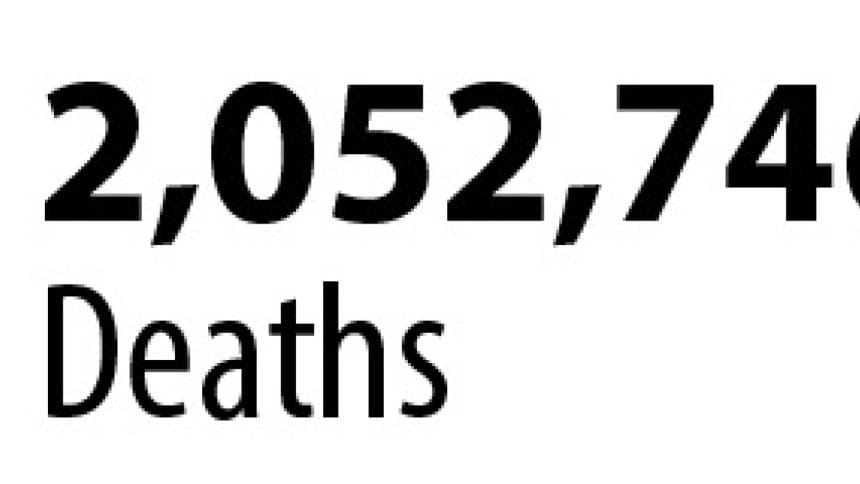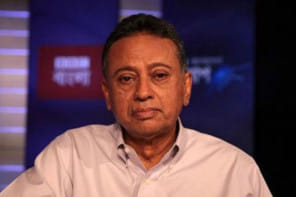WHO, China could have acted faster
China and the WHO could have acted faster to avert catastrophe during the early stages of the coronavirus outbreak, a panel of independent experts concluded, as the global health body and EU moved to secure vaccines for poorer nations.
The Independent Panel for Pandemic Preparedness and Response said its evaluation of the start of the crisis in China "suggests that there was potential for early signs to have been acted on more rapidly".
Containment measures should have been implemented immediately in all countries where transmission was likely, the panel said in their second report presented to the WHO's executive board yesterday.
The pandemic has exposed how underfunded and powerless the World Health Organization (WHO) is to carry out the tasks the world expects of it, the panel said.
But the panel stressed that the delays and failures could largely be attributed to the weak position of the UN agency, and said more funding and reforms were desperately needed.
"The world is more reliant on an effective WHO than ever before," said former Liberian president Ellen Johnson Sirleaf, who co-chairs the panel with former New Zealand prime minister Helen Clark.
Covid-19 was first detected in the central city of Wuhan in late 2019 before seeping beyond China's borders to wreak global havoc, costing more than two million lives and eviscerating economies.
The panel said it was clear that "public health measures could have been applied more forcefully by local and national health authorities in China in January".
The report also criticised the WHO for dragging its feet at the start of the crisis, pointing out that the UN health agency did not convene its emergency committee until January 22, 2020.
And the committee failed to agree to declare the outbreak a Public Health Emergency of International Concern (PHEIC) -- its highest alert level -- until a week later.
TRUMP ACCUSATIONS
"It is not clear why the committee did not meet until the third week of January, nor is it clear why it was unable to agree on the (PHEIC) declaration... when it was first convened," the report said.
The WHO has already faced claims it was too slow to declare an international crisis, to acknowledge the virus was spreading through the air, and to recommend face masks.
Outgoing US President Donald Trump accused the organisation of botching its handling of the pandemic and of being a "puppet of China".
The panel began its work in July after WHO member states called for an "impartial, independent and comprehensive evaluation" of its response to the pandemic.
'HIDDEN EPIDEMIC'
Just over a year after the first cases of Covid-19 were detected in China, experts agree that the official tally of over two million deaths and close to 100 million infections is an underestimate.
And according to the panel report, the case numbers have been undercounted from the start.
"In retrospect, it is clear that the volume of infections in the early period of the epidemic in all countries was higher than reported," it said.
"A largely hidden epidemic contributed to the global spread."
The WHO and national authorities were not quick enough to warn that the virus could spread between people, including those without symptoms could pass it on, the panel said. It also questioned whether the WHO should have used the word pandemic earlier than it did.
VACCINES FOR POORER NATIONS
The European Union wants to set up a mechanism that would allow the sharing of surplus Covid-19 vaccines with poorer neighbouring states and Africa, the EU health chief said yesterday, in a move that may undercut a WHO-led global scheme.
The EU, with a population of 450 million, has already secured nearly 2.3 billion vaccines and candidates from six companies, although most of them still need regulatory approval.
"We are working with member states to propose a European mechanism to share vaccines beyond our borders," EU health commissioner Stella Kyriakides told EU lawmakers yesterday, confirming a Reuters report from December.
She stressed the mechanism would get vaccines to poorer countries "before COVAX is fully operational", referring to the global scheme co-led by the World Health Organisation set up last summer to ensure a fair distribution of Covid-19 shots across the world.
Meanwhile, a senior WHO official said on Monday the world health body is in advanced negotiations with Pfizer to include the firm's Covid-19 shot in the body's vaccine-sharing scheme, which would speed vaccine deliveries to poorer countries.
"We are in ... detailed discussions with Pfizer. We believe very soon we will have access to that product," WHO senior adviser Bruce Aylward told the WHO's executive board meeting, adding that it would then look to add others.
COVAX aims to deliver 135 million doses of all shots it has deals for to 92 lower and middle income countries in the programme by the end of March, he said.
So far, over half of the 50 million inoculations given globally in 50 countries have been done in the United States and China, according to Aylward. None have yet been given in Africa, he said.


 For all latest news, follow The Daily Star's Google News channel.
For all latest news, follow The Daily Star's Google News channel. 



Comments